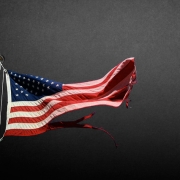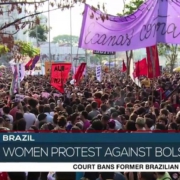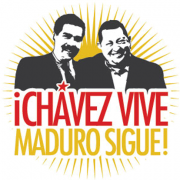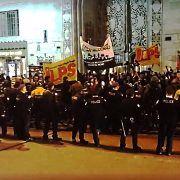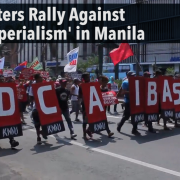This article by Jose Maria Sison is “prompted by the unprecedented scale and intensity of the people’s mass protests which have been breaking out in all continents since last year.” The author traces developments that have led to the mass protests that took up many current burning issues. Sison asserts that “the current wave of mass protests signals the transition to a new era of unprecedented anti-imperialist and anti-fascist resistance by the peoples of the world and the resurgence of the world proletarian revolution.”
Read moreBroad themes and issues under global capitalism and imperialism, as they affect the entire world, various countries/regions, and major sectors
Opinion by PRISM editors
The debate is heating up on whether Mao Zedong’s theory of protracted people’s war has worldwide applicability today. The timing, while probably unintended, aptly coincides with the forthcoming 70th anniversary on October 1 of the People’s Republic of China. Mao’s theory developed and proved a success in China’s civil and national wars through the late 1920s, 1930s and 1940s until the Communist-led forces won nationwide victory in 1949.
Read morePRISM editors are posting below the full text of a major response by Andy Belisario to the simmering debate on the “universality of people’s war”.
Read moreMore than 120 Filipinos and their international friends in Europe gathered to celebrate 50 years of struggle for social and national liberation in the Philippines on 31 March 2019. Billed as a “Tapestry of Resistance,” the event in Amsterdam, the Netherlands resonated with many other gatherings in the Philippines and overseas that commemorated the 50th anniversary of the founding of the New People’s Army.
Read moreBy Antonio Tujan Jr.
Crosscurrents 30 |7 March 2019
That the US should warn the Duterte government to be wary over concluding treaties with China just shows that the world is no longer under a single hegemonic global power. Before, the US would not simply countenance a former colony of brown Americans to welcome the Chinese. Nor would it allow any president before Duterte to make overtures to everyone, most specially the communist regime of China.
The rise of China as the strongest economy overall puts the US at a disadvantage even though the dollar still reigns supreme as a global currency standard. It would be stupid for anyone, must less the government, not to recognize that opportunity to develop friendly relations along with the benefits of economic cooperation. Not to mention the geopolitics of the West Philippine Sea dispute.
Of course, we assume that the Duterte government is wary of the pros and cons in dealing with China, of its economic and geopolitical interests on the Philippines. But Trump is playing big brother politics to even warn the Philippines or the Duterte government as if the latter does not know its business. This warning smacks of US imperialism, on the decline, especially after China has overtaken it.
Russia has emerged from the ashes of the collapse of the Soviet Union and recovered its military might, still not as strong as that of the US but sufficient enough to challenge the US. Russian official claims that US and Russia nuclear parity has been broken with a new generation of Russian nuclear military technology. This lead Trump to break off its agreement on intermediate range missiles in Europe.
The parity in economic and military strength with emergence of China and Russia translates to the tremendous weakening of US political hegemony overall. This phenomenon has reported by many diplomatic quarters especially from intergovernmental organizations like the UN as early as 2015 when several agreements and treaties could no longer be concluded easily with objections from China and India and the realignments in the UN such as the emergence of G77+China.
IBON International has monitored developments over the decade and reported in its International Situation Briefings in 2013 the emergence of this new phenomenon. This has become known internationally in 2015 as the new multipolar world order – the US is no longer the sole global hegemon after the end of the Cold War and the collapse of the Soviet Union. US hegemonic power is starting to crumble in a multipolar world full of conflict.
Does this phenomenon mean the emergence of other hegemonic powers such as China and Russia? Not necessarily. There are several economic, political and military factors that can operate one way or the other to create new hegemons. Several aspects and factors than can decide this include investment, trade, conflicts, military build up, diplomacy and alliances, etc.
The US continues to use what is left of its political, economic and military strength and existing agreements to preserve what is left of the framework of its hegemonic power to prevent what can be a catastrophic collapse of the capitalist system. Its stranglehold on the international monetary system through the IMF and the worldwide currency peg to the dollar is under tremendous challenge whether from the strength of the yuan/Chinese economy or the euro transactions as pragmatic solutions to address unreasonable economic sanctions on several countries like Venezuela, Iran or North Korea under US political economic attack.
US unilateralism under Trump is politically, economically and diplomatically dangerous for the US. Trade wars with the European Union, China or Canada easily backfires when the US is on the defensive in the first place. These actions weaken the international neoliberal agenda and leaves the WTO and similar agreements severely frayed. These reflect the severe contradictions faced by monopoly capital in the face of a full decade of no growth since the collapse of 2008. Since 2011 when the world emerged from the worst depression since the 1930s, it still faces depressionary features of a stagnant world economy overall.
Behind the US-initiated trade wars is its intention to revive its flagging industry but China has long overtaken the US industrial development and high technology. The irony of it all is that China is so far ahead in the game that it produces and exports robots to run the new factories the US wants to build. (More in Part 2)##
PRISM Editor’s note: This statement by the International League of People’s Struggle, originally circulated on 2 November 2018, was reissued by the Office of the ILPS Chairperson on 4 November with slight revisions. We are posting this reissued version.
Read moreThe International League of Peoples’ Struggle (ILPS) reiterated its solidarity with “the government and people of Venezuela in their heroic struggle for national independence and socialism against US imperialism and its lackeys” within the country.
In the statement, ILPS chairperson Professor Jose Maria Sison reviewed the successes of “the Bolivarian revolutionary struggle” in Venezuela under the leadership of its late president, Hugo Chavez. “The people of Venezuela are loyal to and love Comrade Hugo Chavez because he led them to assert national independence and to aim for socialism,” Sison said. Read more
The International League of Peoples’ Struggle (ILPS) held its conference on October 22 entitled “Right to Resist, Right to Exist: Unite to Fight Police Terror, State Repression, and Racism.” The decades-long cumulative results of neoliberalism and the crisis of monopoly capitalism provides a sweeping background of the current spate of state repression and police brutality in the US, and the basis for a broad united front vs. US imperialism. Prof. Jose Maria Sison, Chairperson of the ILPS’ International Coordinating Committee, sent this message of solidarity to the conference. Read more
“The recent ruling of the Philippine Supreme Court, which upheld with finality the constitutionality of the Enhanced Defense Cooperation Agreement (EDCA), [is] a stark reminder that the Philippines remains a staunch bulwark of US imperialist hegemony in the Asia-Pacific region, and that reactionary pro-US forces remain in control of the main levers of the Philippine state.”
PRISM is circulating the following statement by Prof. Jose Maria Sison, Chairperson of the International League of Peoples’ Struggle (ILPS).
| M | T | W | T | F | S | S |
|---|---|---|---|---|---|---|
| 1 | 2 | 3 | 4 | 5 | 6 | 7 |
| 8 | 9 | 10 | 11 | 12 | 13 | 14 |
| 15 | 16 | 17 | 18 | 19 | 20 | 21 |
| 22 | 23 | 24 | 25 | 26 | 27 | 28 |
| 29 | 30 | |||||
Pages
Categories
- ANZ-Oceania
- Armed struggles
- Articles
- Asia-Pacific
- Climate and environment
- Culture and propaganda
- Culture, propaganda and ideology
- East Asia
- Europe
- Events calendar
- Frontpage Article
- General
- Geopolitics and the state
- Global capitalism
- Global economy
- Global events
- History
- Joma Sison
- Latin America
- Marx Bicentennial
- Marxism-Leninism
- Mass struggles
- Middle East
- Military affairs
- Multimedia
- News and articles
- North America
- October Revolution Centennial
- Organizations
- Other social sectors
- Papers and monographs
- Paris Commune 150
- Peasantry
- Philosophy
- References
- Russia and Central Asia
- Social issues
- Socialism
- Socialist theory
- South and West Asia
- Strategy and tactics
- The movement
- The world
- Trotskyism
- Uncategorized
- Webinars
- Working class
- Youth
Archive
- February 2023
- December 2022
- November 2022
- October 2022
- September 2022
- May 2022
- September 2021
- April 2021
- March 2021
- December 2020
- November 2020
- September 2020
- August 2020
- July 2020
- June 2020
- May 2020
- April 2020
- March 2020
- September 2019
- April 2019
- March 2019
- February 2019
- November 2018
- June 2018
- May 2018
- March 2018
- December 2017
- November 2017
- October 2017
- September 2017
- July 2017
- May 2017
- April 2017
- March 2017
- February 2017
- January 2017
- October 2016
- July 2016
- June 2016
- May 2016
- April 2016
- March 2016
- February 2016
- January 2016
- November 2015
- September 2015
- June 2015
- March 2015
- February 2015
- November 2014
- September 2014
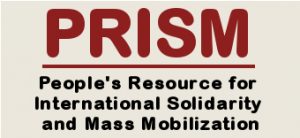
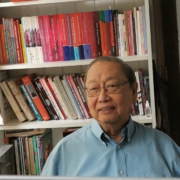
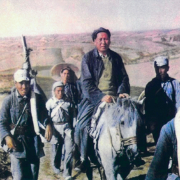
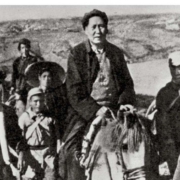
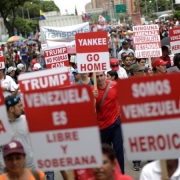
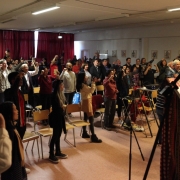 NDFP
NDFP